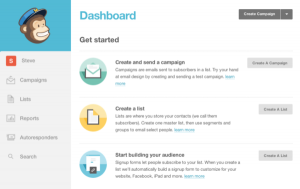Eventually, every small business owner has to hire an accountant. But accountants are anything but one size fits all. Accountants bring order to one of the trickiest, most stressful parts of your business: finances. With a solid accountant, you can save your company money, stay compliant with governing agencies, and budget for the future. Without proper vetting, however, you may hire someone who does more damage than good. Here’s what you should ask before hiring an accountant:
1. What Do They Specialize In?
Accounting is a vast industry with various specializations. Not every accountant can perform every duty. That’s why you should focus on specialty areas as part of what you ask before hiring an accountant.
Some accountants focus on tax preparations, while others handle essential business reports. First, figure out what your accounting needs are, and then seek an accountant with a track record of tackling those particular tasks.
2. Do They Have the Right Qualifications and Certificates?
Depending on what they do, accountants require specific certificates from governing agencies. For example, accountants need a certified public accountant credential to write an audit report about your company’s finances. If a prospect can’t show you her credentials, it’s a red flag that she may not be the right accountant for you.
3. Do They Have Experience With Small Businesses?
When you hire for any position, you need to look for relevant experience. In this case, you should investigate if the accountant has experience working with small businesses.
Some accountants have only worked with corporations. They may not realize that small businesses can do accounting differently. Many small businesses use the cash method of accounting, while a lot of larger companies use the accrual method.
4. How Comfortable Are They With Accounting Software (and Other Apps) You Use?
Chances are, you’re probably already using accounting software. The accountant you hire should already be familiar with the tools your business uses. If not, is he or she willing to learn them?
To save time and reduce the risk of errors, most of today’s modern accountants also use tools like payroll software. Software can automate tedious tasks, streamline reporting, and in many cases, enable employees to access pay stubs and tax information. But it can also cause headaches if your systems don’t mesh. Make sure all your back office software is compatible with theirs before making a choice.
5. How Risk-Averse Are They?
When you interview a prospective accountant, it’s important to understand how they might treat risky circumstances.
If your small business is brand new, it’s likely to have a lot more expenses than income. Is your candidate comfortable with that? How much debt might she suggest you take on to get your company on a firm footing? It’s important that your small business accountant has a spirit of entrepreneurship and is willing to weather the challenges of a younger company.
Another consideration is how risky or conservative candidates are when it comes to everyday decisions like small business tax deductions. Point out a few deductions your company could claim: Do they tend to be reckless, overly conservative, or somewhere in between?
You may not find an accountant who’s exactly as risk-averse as you, but it’s important that you’re both in the same ballpark. That way, there aren’t major disagreements down the road.
6. What’s Their Personality Like?
Skills and experience go a long way, but it’s a deal-breaker if they have a bad attitude. Accountants do stressful work. Ask before hiring an accountant to see if they stay calm and collected throughout the workday.
When you interview an accountant, consider these questions privately:
- Do they speak ill of their previous employers, or are they grateful for their past jobs?
- Do they admit to their own mistakes, or do they constantly blame others?
- Do they take feedback well, or do they snap back when corrected?
A negative person in the workplace can bring down morale and create tensions across the entire team. Don’t just consider whether or not the person can do the job, but also how their personality might affect others.
7. What Do Their References Have to Say?
If there’s one employee that business owners are happy to share feedback about, it’s their accountant. Accountants can make life a lot less stressful, or they can get the company in a quagmire of legal issues.
Ask around. In addition to personality issues, ask about their contribution to the company’s bottom line. Did the accountant spot a bunch of new deductions for her last employer? Did she help the sales team collect on a lot of outstanding accounts?
You may have a lot of responsibilities on your plate, but choosing the right accountant isn’t one you want to rush. Keep talking to candidates until you meet one that you’re comfortable working with on a daily basis.
When you ask before hiring an accountant, you will find the right professional and stop stressing about complex financial tasks. With all the other work that small business ownership entails, your books should be the last thing on your mind.
Business & Finance Articles on Business 2 Community
(24)
Report Post


